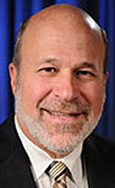Stallman confirms Farm Bureau will be flexible on policy
March 13, 2012 | 06:33 PM

American Farm Bureau Federation President Bob Stallman confirmed today that three state Farm Bureau chapters have dissented from the national organization's farm bill proposal, and that he will tell the Senate Agriculture Committee Thursday that Farm Bureau will consider supporting alternative proposals.
In a telephone call to reporters, Stallman said that the Arkansas, Louisiana and Mississippi Farm Bureaus have dissented from the national policy. Farm Bureau has “no secrets,” Stallman said, noting there is a formal dissent process within the organization.
But he added that none of those state chapters have proposed an alternative to the catastrophic loss program that Farm Bureau has proposed. He added that 47 states and Puerto Rico support the proposal approved at the annual convention in Hawaii in January.
Stallman said that Farm Bureau has not abandoned its proposal, but that he will indicate flexibility when he testifies on Thursday. He said the board, which voted last week to consider supporting other proposals, has concerns that its approved policy “is revolutionary” and that the Congressional Budget Office has not scored the measure at a time that the Senate Agriculture Committee is headed toward markup of the bill.
Stallman said the organization still hopes to receive a CBO score within the next two weeks and that House Agriculture Committee Chairman Frank Lucas, R-Okla., has asked CBO to score it.
Stallman said that if the farm bill does not pass this year, he believes there will be more appreciation of the proposal. He noted that agriculture groups “are not together” on a farm bill proposal this year.
The public understands crop insurance and the fact that farmers pay premiums for it and that payments are made in times of trouble rather than at all times, Stallman noted. He also said he believes that the cut to farm programs may be higher than the $23 billion that congressional farm leaders have proposed.